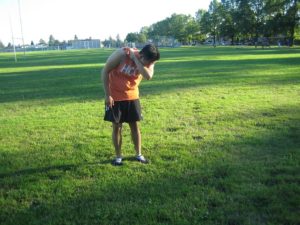Aspergillosis is a condition that affects the lungs and triggers difficulty breathing caused by the aspergillus mold. It is important to note that there are various forms of aspergillosis.
How do I acquire aspergillosis?
Aspergillosis is typically caused by inhalation of small amounts of mold. The mold is generally found in the following:
- Plants, trees and crops
- Compost, soil and rotting leaves
- Damp buildings
- Dust
- Air conditioning systems
Coughing that might include blood or mucus.
It can also be acquired from another individual or from animals.
What are the signs?
The indications of aspergillosis generally include:
- Coughing that might include blood or mucus
- Shortness of breath
- Fever of 38 degrees C or higher
- Wheezing
- Weight loss
If the individual has an existing lung condition, the current symptoms might worsen.
When to consult a doctor
A doctor must be seen for the following:
- Cough that lasts more than 3 weeks
- Weakened immune system and signs of aspergillosis
- Lung condition that is getting worse or difficult to control with the usual treatment
Consult a doctor right away if the individual coughs up blood.
Management
The treatment is typically aimed on controlling the symptoms. If not correctly treated or properly controlled, there is a risk for lung damage.
Take note that the treatment is based on the type of aspergillosis.
- Allergic bronchopulmonary – this is an allergy to the mold and treated with steroid and antifungal tablets that are taken for a few months
- Chronic pulmonary – this is a long-standing lung infection that requires long-term care with antifungal drugs
- Aspergilloma – this is a ball of mold that forms in the lungs and necessitates surgical removal if it triggers symptoms
- Invasive pulmonary – this is a dangerous type of infection among individuals with a weak immune system. It is treated with antifungal drugs administered intravenously in a healthcare facility

